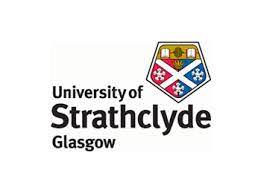University of Strathclyde: Strathclyde partners with US firm to lead patent portfolio for pioneering light technology
News
Strathclyde partners with US firm to lead patent portfolio for pioneering light technology
A petri dish bathed in HINS light.
20 May 2022
The University has partnered with US company Korrus to lead the patent licensing for its groundbreaking High Intensity Narrow Spectrum (HINS) light technology.
A research team at the University developed the revolutionary system that decontaminates the air and exposed surfaces safely in the presence of humans, preventing the spread of infection.
A synergy between HINS-light and the recent work of the technology firm was recognised by the parties who have been working together to establish a partnership to provide a patent pool for one-stop licensing.
Korrus is focused on Human Light Interaction (HLI) and the partnership with Strathclyde is designed to aid a streamlined, global adoption of the visual light disinfection technology. It will see all future worldwide antibacterial lighting patent licensing efforts led by Korrus.
Global scale
Professor Scott MacGregor, Vice-Principal of the University of Strathclyde and leader of the HINS-light research team, said:
The University seeks to forge meaningful partnerships with organisations across the world and this latest partnership with Korrus builds on our many years of research and development of HINS-light. To bring novel, light-based products to market at global scale is exciting and together we look forward to paving the way to mass adoption of much-needed visible light disinfection products.
The innovative HINS-light technology was developed in the University’s state-of-the-art Robertson Trust Laboratory for Electronic Sterilisation Technologies (ROLEST) by Professor Scott MacGregor, Professor John G Anderson, Dr Michelle Maclean and Professor Gerry Woolsey.
Narrow spectrum
It can inactivate harmful bacteria such as MRSA in the air and on surfaces using a narrow spectrum of visible light. The light-based disinfection method operates at a wavelength where it can be run safely in the presence of humans and provides significantly greater reductions of bacterial pathogens in the environment than can be achieved by conventional cleaning techniques. The discovery signalled a huge step forward in the ability to prevent the spread of infection and after many trials in the healthcare sector over the last 15 years the University has entered into a number of licence agreements across the globe.
Mark Reynoso, CEO of Korrus, said: “At Korrus, we recognised that the best solution to opening the market requires a broad licensing strategy built around both Korrus patents and the University of Strathclyde patents.
“Through this partnership, we can now offer a comprehensive licensing programme around antimicrobial lighting technologies, to help to reduce illness and disease caused by bacteria and fungi.”

